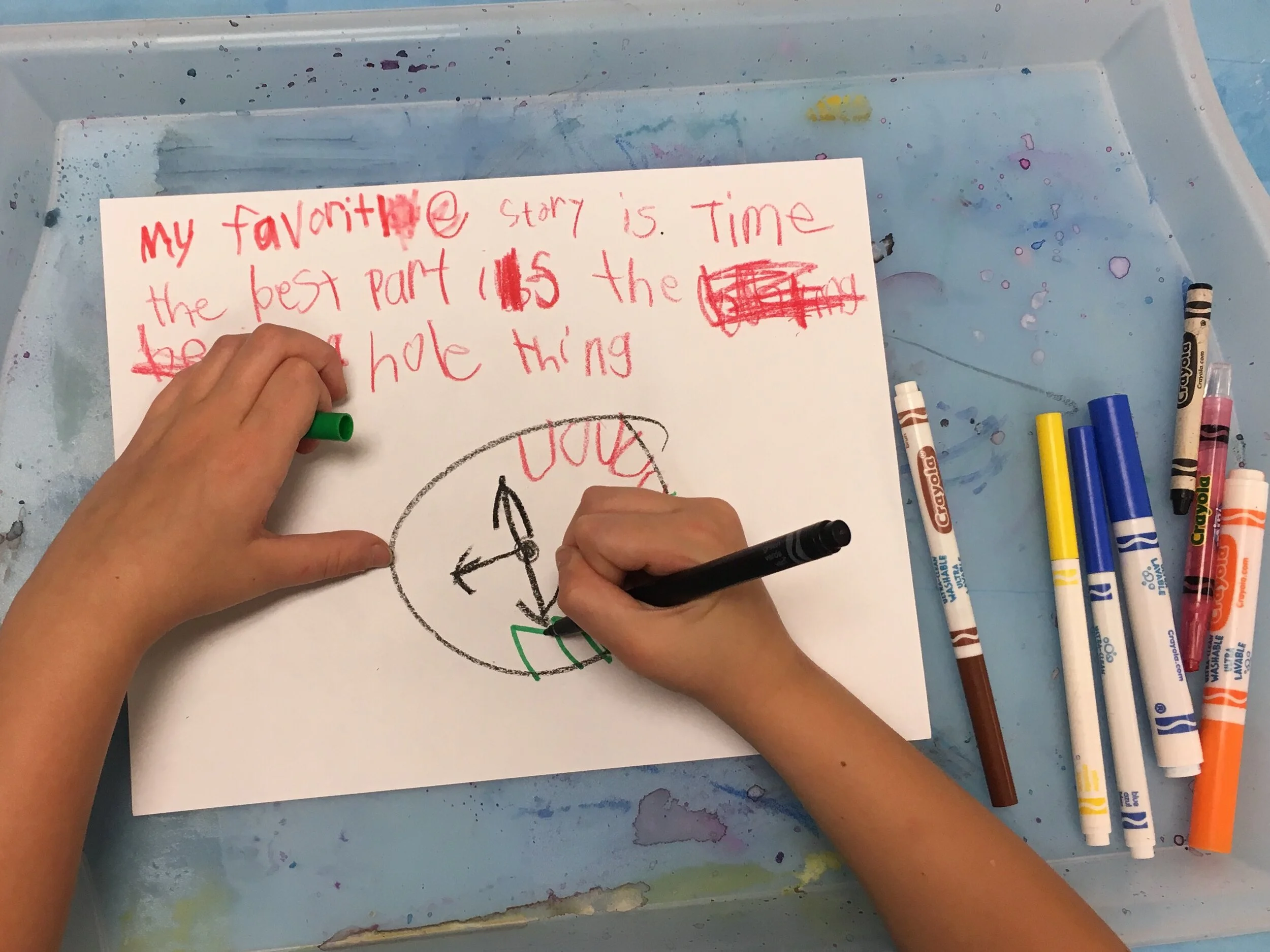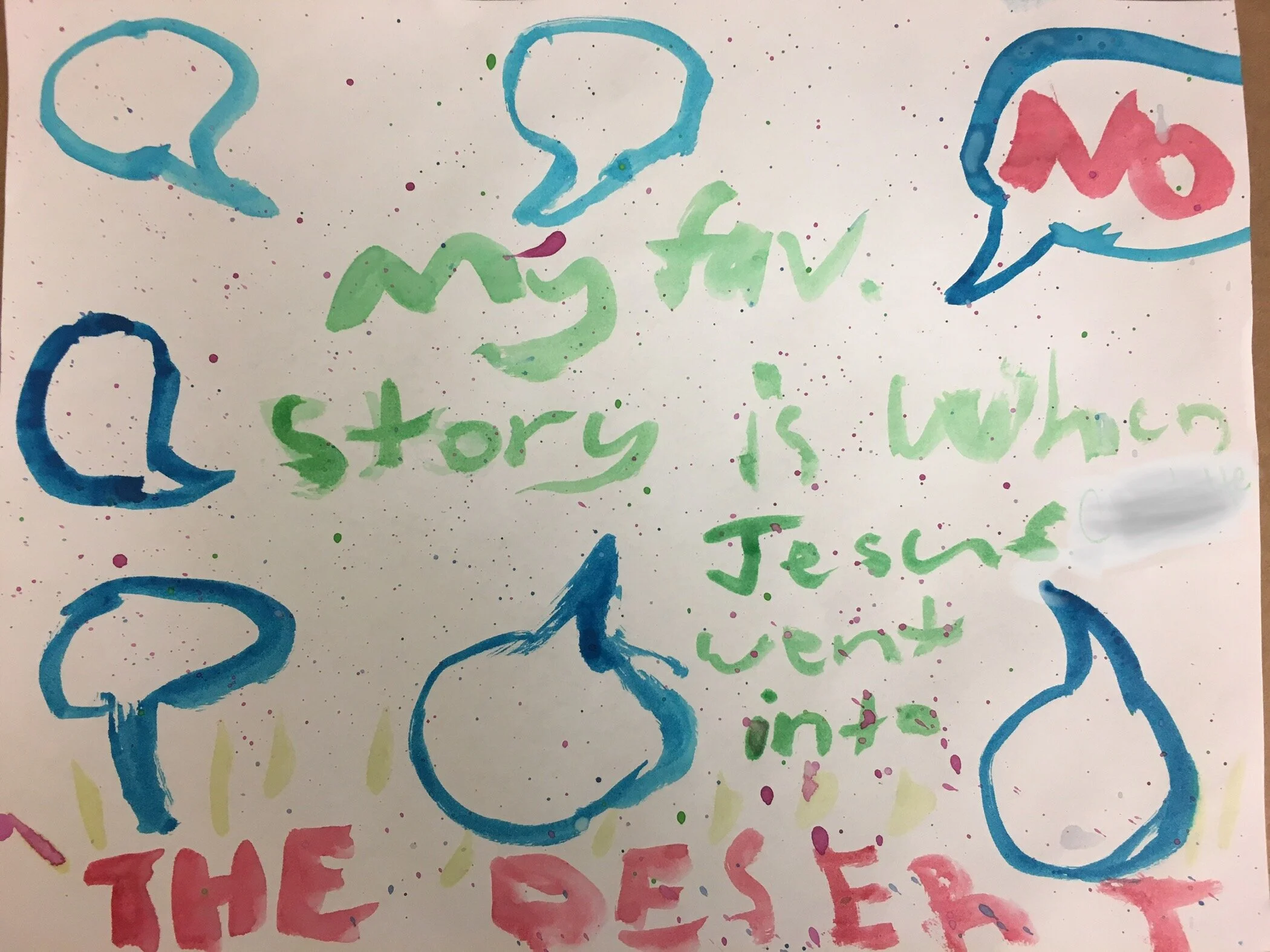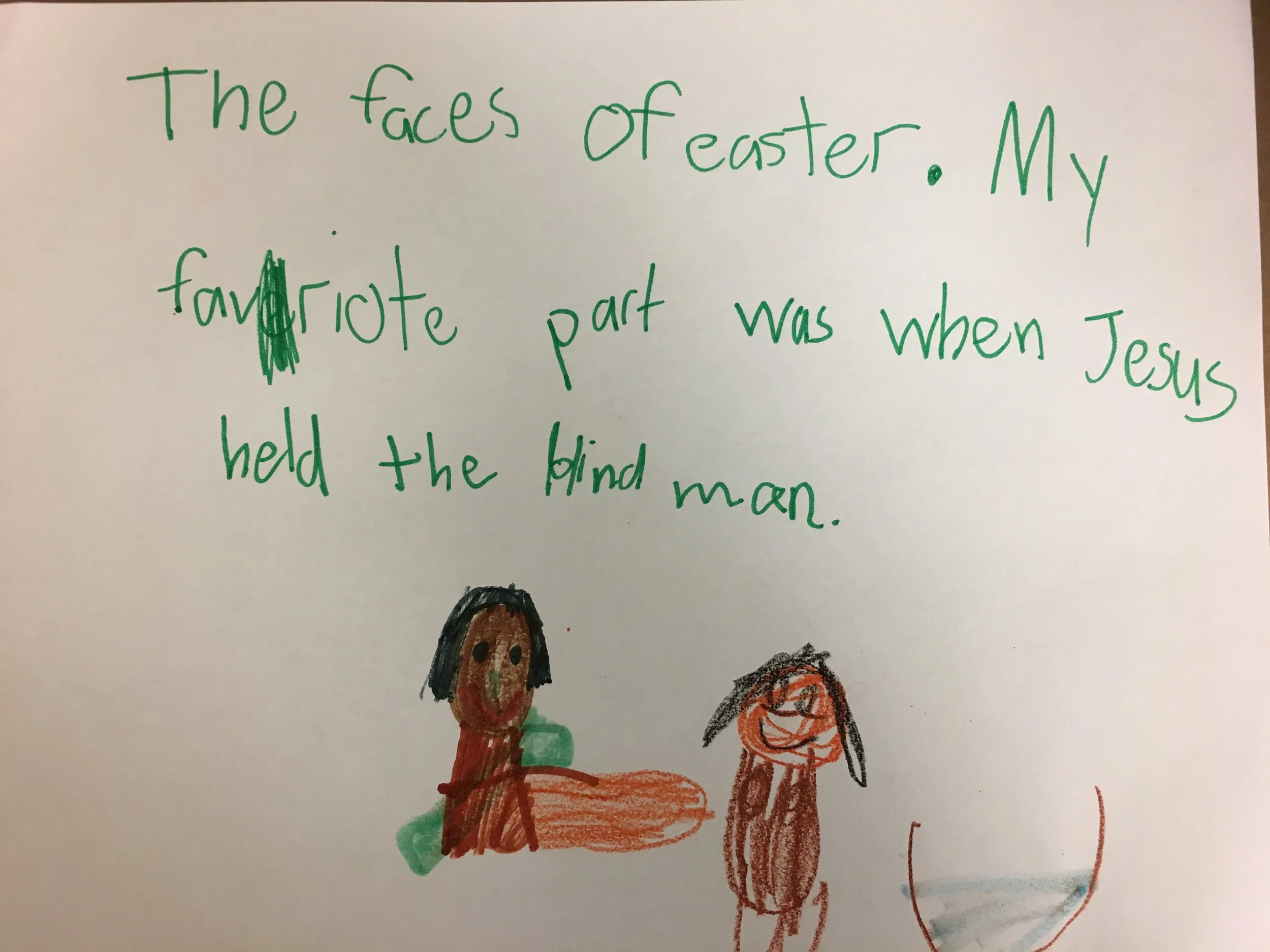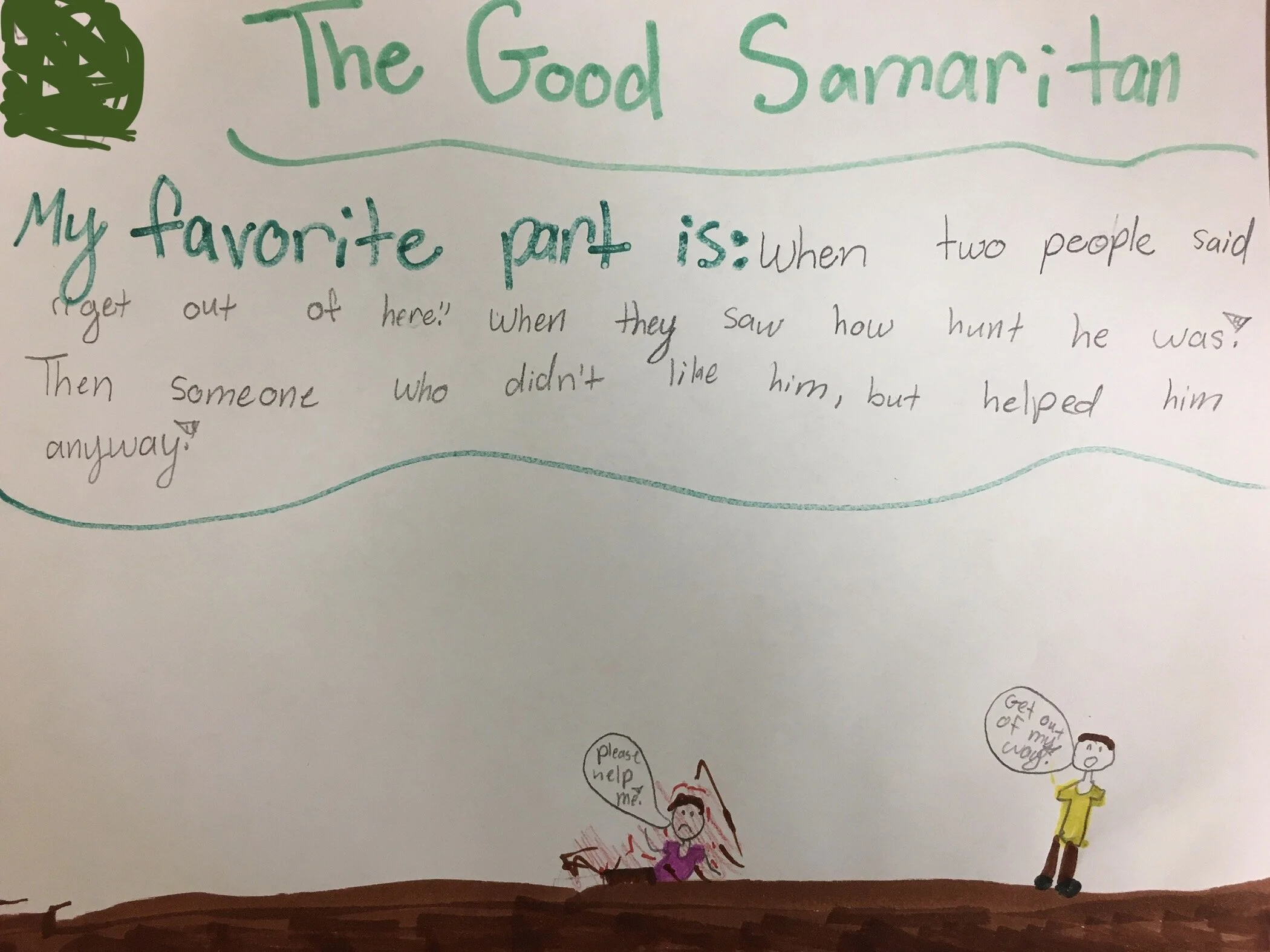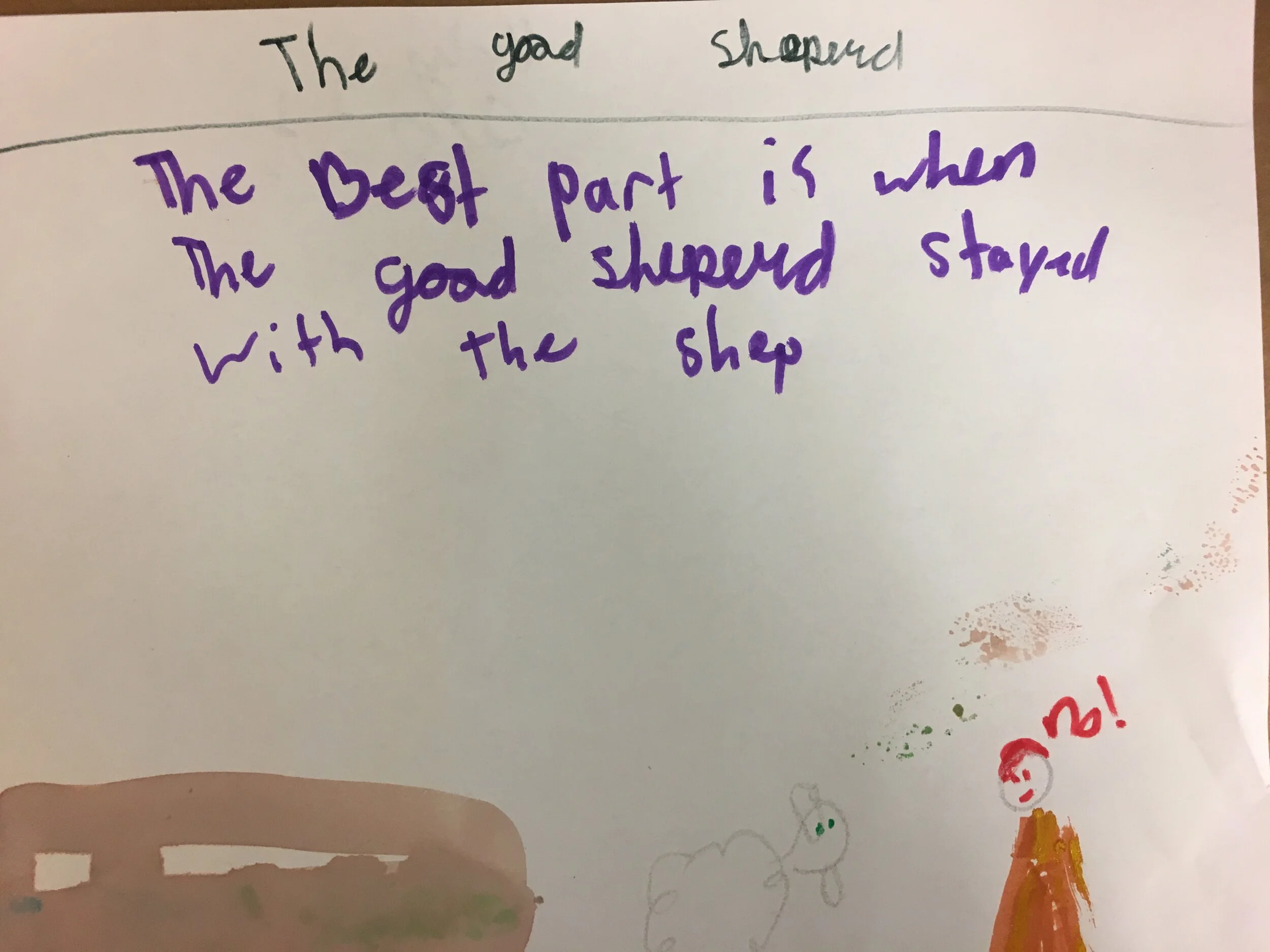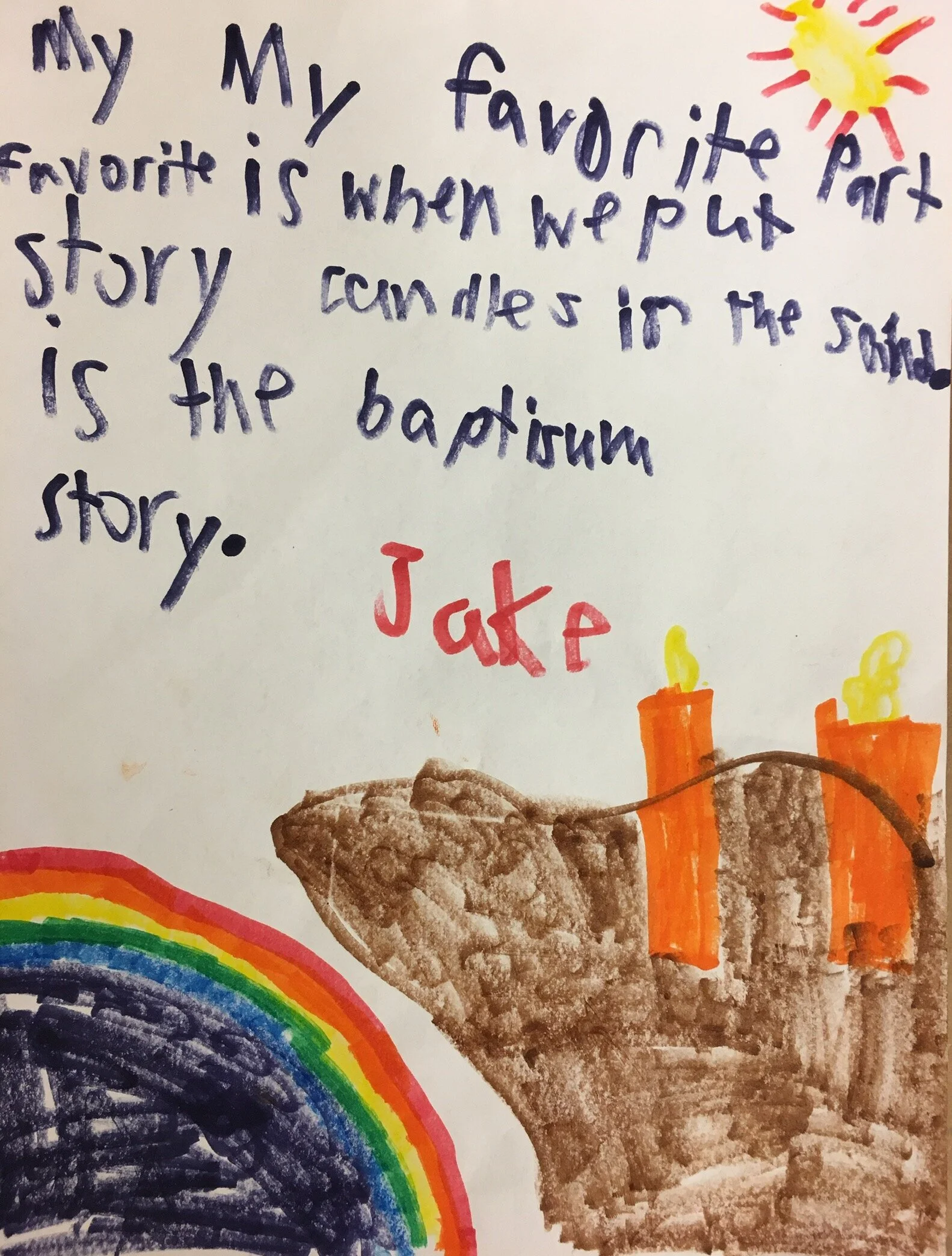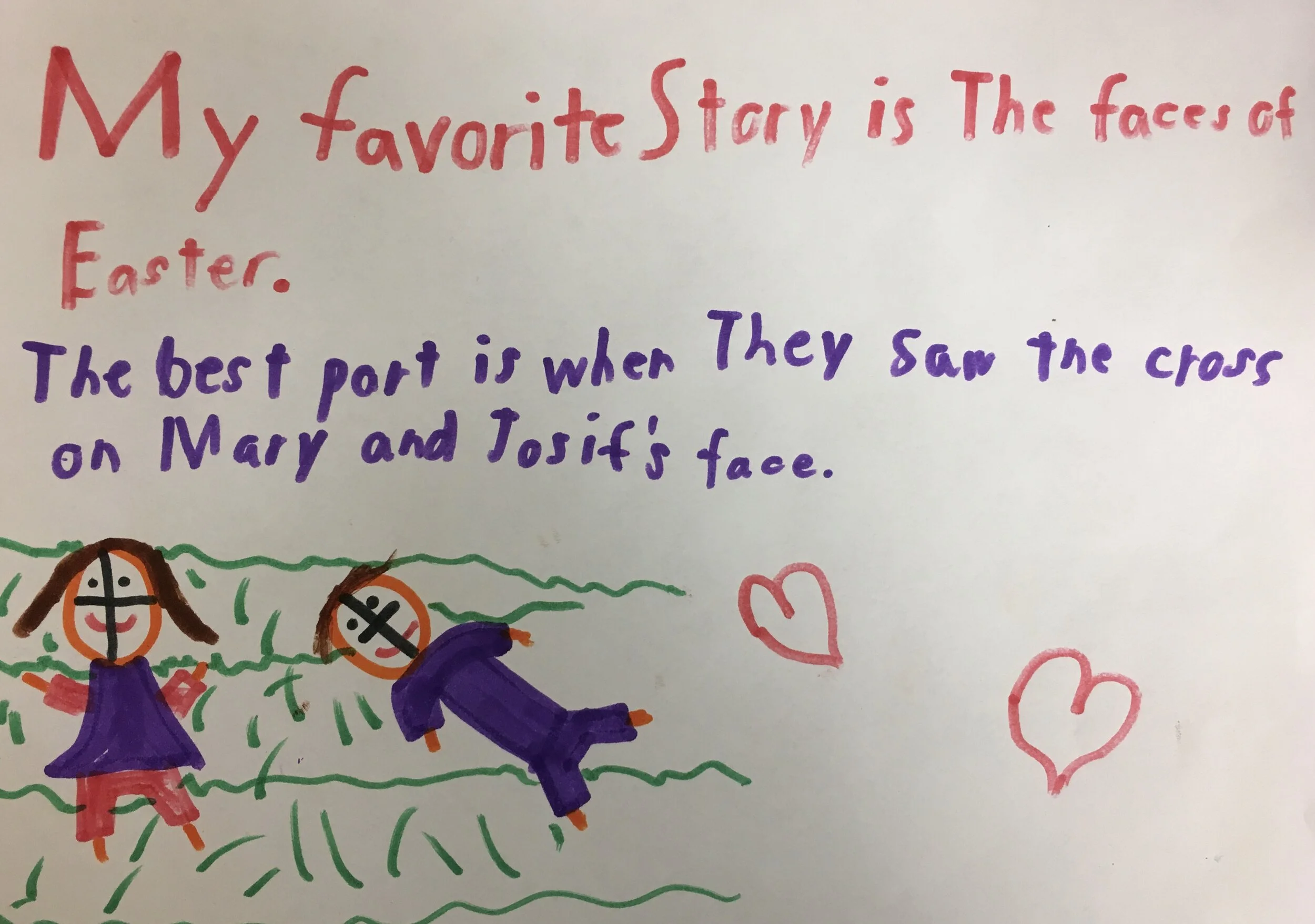Published Elsewhere
July 3 Letter to the Godly Play Community: The Good Shepherd iS Calling
Prophets are people who come so close to God, and God comes so close to them, that they know just what God is calling them to say or do. Those of us who practice Godly Play know that prophets can be children. Inside the sacred space of a Godly Play room, children practice the Christian rhythms of silence, story, reflection, and community. When children speak in a Godly Play room, adults listen.
Listening to, observing, and honoring children is at the heart of the practice of Godly Play and of the Montessori method, where Godly Play has its roots. As a parent, an educator, and follower of Jesus I am deeply grateful for the opportunity Godly Play has given me to be with children in this counter-cultural posture and for how much I have learned and grown through my Godly Play practice.
I am also deeply troubled by the stark whiteness of the community of Godly Play practitioners and, in particular, our leaders in the United States. I recently stepped into the role of president of the Godly Play Foundation board of directors, and it seems clear that God is calling all of us-- the board, our trainers, and the church communities that use Godly Play with their children--into the work of anti-racism, but unlike the prophets, I do not know exactly what to say or do.
As I prayed for God to give me the words to begin to meaningfully address this issue with the Godly Play community, the image of my son, then 4-5 year old, sitting at the dinner table after a long and glorious day of playing outside in the snow came to mind.
Seemingly out of nowhere, he turned and said, "Mama, you know the ordinary shepherd? From the story?"
"I do."
"Well, he wasn't bad you know. He just. . . he just wasn't very good at his job. At being a shepherd."
"Hmmm, I wonder what he could have done better?"
Immediately, he responded, "Call the sheep by name!" After a few minutes of silence I asked him if there was anything else the ordinary shepherd could have done differently. In a tone that clearly suggested I should be able to figure this part out for myself he said, "Ask the Good Shepherd for help."
We, the leaders of the Godly Play community in the United States, have not called our Black sisters and brothers by name. We have not explicitly examined the how the culture of our organization, in ordinary ways, reflects the structures of oppression that plague our nation and undermine the Gospel message. We have operated with good intentions that are no longer good enough, and we are ready, with the Good Shepherd's help, to do better.
Our first task is to engage in a period of listening to and honoring people of color. We will likely hear some uncomfortable truths, and we might also hear that in this current moment of grief and exhaustion that the best way to honor those who have been confronting these issues their entire lives is to do our own work for now. By that, I mean take a deep dive into the anti-racism resources that are currently available, learn about how to be a white ally, and not create any additional emotional burden on the people of color in our circles as we confront the realities of racism that exist even in our most sacred spaces.
Using these resources to equip trainers, board members, and Godly Play mentors with anti-racist language is a critical component of ensuring that our circles are facilitated in a way that is consistent ideals of Maria Montessori and the Good News of Jesus.
As we take these first steps, we will also be working to update the most obviously problematic artwork in the curriculum as quickly a possible, publish six additional saints stories, beginning with Barbara Harris, and convene an anti-racism task force to identify and address additional opportunities for growth and reconciliation. Please provide your input by participating in the questionnaire linked below.
Thank you for the work you do to honor and nurture the spirituality of children. Thank you for your patience and prayers as the Godly Play Foundation moves into our next chapter. Thank you for your feedback, your commitment, and your passion for ensuring that Godly Play is not just in this place or that place, but that Godly Play can truly be in every place.
Mary Hunter Maxwell
President, Godly Play Foundation Board of Directors
When they saw the light in the darkness, they were afraid. I would be, too. Then they heard singing. That scared them, too, until they heard the words. The angels sang that they came to bring peace on earth and good will to all people. “Run. Hurry. Go to Bethlehem. Something has happened there that changes everything!” (Godly Play, Volume 2)
A few years ago a three year old looked at me very seriously and said with disgust, “Did you know some people think Jesus is God? God can’t be a BABY!”
These kinds of proclamations are why I love working with children.
If you’ve ever spent time with young children, you probably know that the worst thing someone can do to a three year old is call them a baby. Babies are helpless. They cry all the time. Their need to nurse or nap gets in the way of the important things that three year olds want to do. You may have also observed on occasion a young child—given the time and means to express themselves— communicating a deep experience of God that inspires in them awe and wonder beyond the words they have to describe it. Given his experiences, my three-year-old friend’s confusion when trying to reconcile the idea of God (too big for words) and baby (tiny and mostly terrible) makes perfect sense.
And isn’t that what makes the Incarnation so profound? Our too big for words God became a wordless child and that changes everything.
Gracious God, give us the patience to listen for the deep wisdom of the children in our lives, the courage to see more of God revealed in them, and the openness to wonder with them at the magnitude of God’s love for us.
Photo Credit: Charissa Simmons
10/7/2019
Some ideas about using Godly Play “Big” for Building Faith. Many thanks to the other Godly Play Missioners for their help! Building Faith is published by Lifelong Learning at Virginia Theological Seminary. Their mission is to equip and inspire churches and individuals for the ministry of Christian education and faith formation.
How do you know that Godly Play “Works?”
Being the monthly contributor to the Godly Play Facebook page in June 2016 and February 2019 has given me the chance to reflect publicly on the practice of Godly Play several times. This post from last February was when I first started thinking about how to integrate the documentation practices I've seen in Reggio inspired schools into the work of Godly Play. 2/28/2019
where is the good here?
“Asking the children what part they like best is, perhaps, what I like best about a Godly Play lesson.”
The linked article is from June, 2016. Pictures to the right are from May, 2017. Doing Godly Play in school sometimes requires a “product” that we don’t expect in our Sunday Morning circles. The children were asked to reflect on the story they liked best over the course of the school year and the best part of that story for the end of the year project.



